The Best Books Coming to a Theater Near You
This fall, some of our favorite titles are being adapted into films. Here's what to read before you head to the multiplex.
By Mark Athitakis
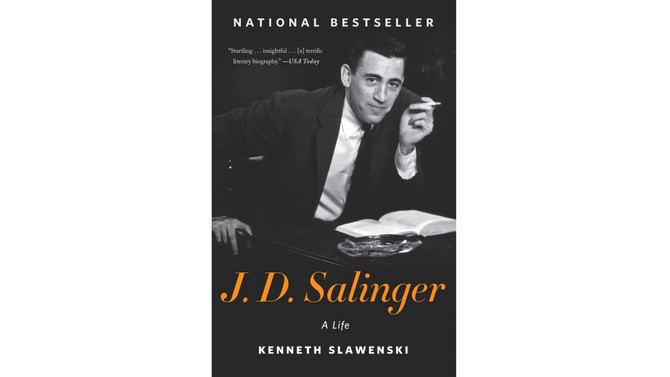
By Kenneth Slawenski
450 464 pages; Random House
The famously reclusive novelist J.D. Salinger never wanted his stories filmed—he thought his books played best in readers' mind—but the intense desire for details about his life made the biopic Rebel in the Rye inevitable. The bulk of the movie, starring Nicholas Hoult and Kevin Spacey, focuses on the genesis of Salinger's 1951 classic, The Catcher in the Rye. For a broader perspective, check out Slawenski's 2011 biography, which covers Salinger's final years of monkish isolation. The book also provides insight into the author's Army service during World War II, and how that experience—and trauma—affected his writing. (Film opens September 15)
450 464 pages; Random House
The famously reclusive novelist J.D. Salinger never wanted his stories filmed—he thought his books played best in readers' mind—but the intense desire for details about his life made the biopic Rebel in the Rye inevitable. The bulk of the movie, starring Nicholas Hoult and Kevin Spacey, focuses on the genesis of Salinger's 1951 classic, The Catcher in the Rye. For a broader perspective, check out Slawenski's 2011 biography, which covers Salinger's final years of monkish isolation. The book also provides insight into the author's Army service during World War II, and how that experience—and trauma—affected his writing. (Film opens September 15)
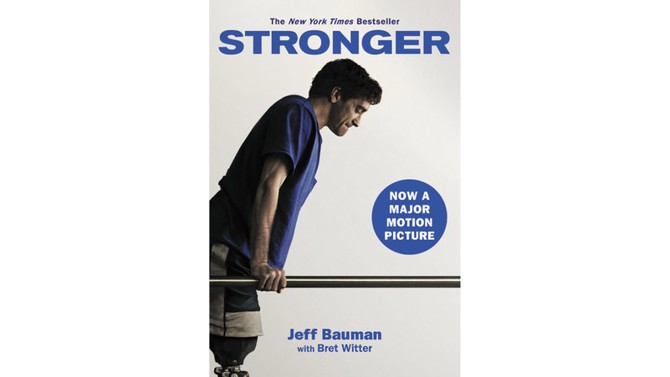
By Jeff Bauman, with Bret Witter
352 pages; Grand Central Publishing
Among the most horrifying images to emerge from the Boston Marathon bombing in 2013 was a photograph of Jeff Bauman, a spectator who lost both his legs in the explosion. Bauman's recovery is the main story of the new film Stronger, starring Jake Gyllenhaal as the working-class Bostonian who must learn to walk on prosthetic legs. Bauman isn't a professional writer, but his memoir is worth reading for its honesty. Friends, family and stadium crowds at Bruins and Red Sox games cheer on Bauman—and yet, his recovery is painful and hard-won. When Red Sox slugger David Ortiz rallied a Fenway crowd in his honor, Bauman was occupied with the unglamorous work of rehabilitation. "I was with a physical therapist," writes Bauman about that day, "learning how to put on my underpants." (Film opens September 22)
352 pages; Grand Central Publishing
Among the most horrifying images to emerge from the Boston Marathon bombing in 2013 was a photograph of Jeff Bauman, a spectator who lost both his legs in the explosion. Bauman's recovery is the main story of the new film Stronger, starring Jake Gyllenhaal as the working-class Bostonian who must learn to walk on prosthetic legs. Bauman isn't a professional writer, but his memoir is worth reading for its honesty. Friends, family and stadium crowds at Bruins and Red Sox games cheer on Bauman—and yet, his recovery is painful and hard-won. When Red Sox slugger David Ortiz rallied a Fenway crowd in his honor, Bauman was occupied with the unglamorous work of rehabilitation. "I was with a physical therapist," writes Bauman about that day, "learning how to put on my underpants." (Film opens September 22)
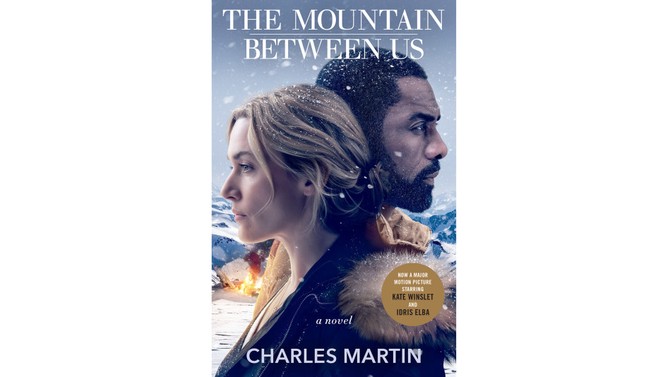
By Charles Martin
336 480 pages; Broadway Books
In this adventure tale, surgeon Ben and journalist Alex (played in the film by Idris Elba and Kate Winslet, respectively) are determined to find a way back to civilization after their small plane crashes on a remote mountaintop between Salt Lake City and Denver. Both the book and the movie are full of compelling scenes about danger in the wilderness. However, Martin's 2010 novel benefits from Ben's intimate narration, combining the survival story with Ben's reflections on his estranged wife back home, revealing the complexities—and perils—of marriage. (Film opens October 6)
336 480 pages; Broadway Books
In this adventure tale, surgeon Ben and journalist Alex (played in the film by Idris Elba and Kate Winslet, respectively) are determined to find a way back to civilization after their small plane crashes on a remote mountaintop between Salt Lake City and Denver. Both the book and the movie are full of compelling scenes about danger in the wilderness. However, Martin's 2010 novel benefits from Ben's intimate narration, combining the survival story with Ben's reflections on his estranged wife back home, revealing the complexities—and perils—of marriage. (Film opens October 6)
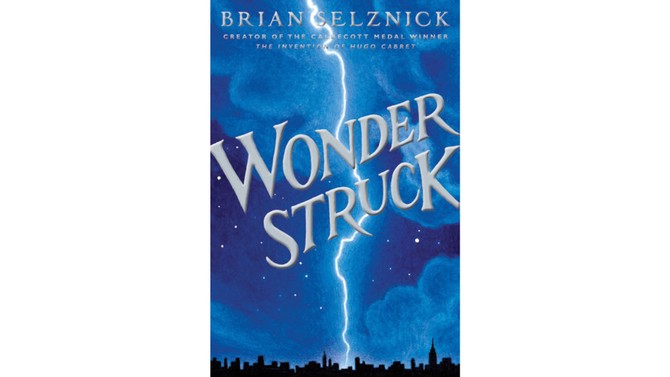
By Brian Selznick
640 pages; Scholastic
Strange and surprising connections across time and place are part of the charm of Selznick's 2011 YA best-seller. Part of the story takes place in 1977, following a boy's journey from Minnesota to New York to learn about the father he's never met. Another part takes place in 1927, tracking a deaf girl's trip from Hoboken, New Jersey, to Manhattan. Director Todd Haynes' film version, based on Selznick's script, is rich with historical detail, but go to Selznick's book for the powerful black-and-white drawings that unite the two narratives. Selznick does an impressive amount of storytelling without words, which is just one way he sensitively handles deafness—and the tender condition of children's hearts. (Film opens October 20)
640 pages; Scholastic
Strange and surprising connections across time and place are part of the charm of Selznick's 2011 YA best-seller. Part of the story takes place in 1977, following a boy's journey from Minnesota to New York to learn about the father he's never met. Another part takes place in 1927, tracking a deaf girl's trip from Hoboken, New Jersey, to Manhattan. Director Todd Haynes' film version, based on Selznick's script, is rich with historical detail, but go to Selznick's book for the powerful black-and-white drawings that unite the two narratives. Selznick does an impressive amount of storytelling without words, which is just one way he sensitively handles deafness—and the tender condition of children's hearts. (Film opens October 20)
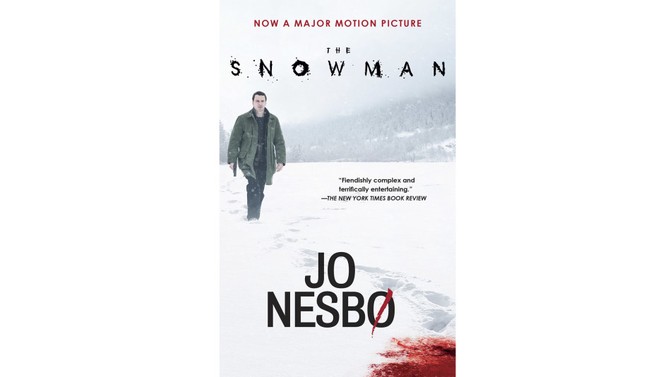
By Jo Nesbø
512528 pages; Vintage Crime/Black Lizard
Get ready for the film debut of Scandinavian crime-fiction master Jo Nesbø's famous detective, Harry Hole. He's tracking a serial killer who targets married moms and leaves crayon drawings and snowmen to mark his latest victim. Michael Fassbender captures Hole's stiff-jawed determination, but part of what keeps you reading Nesbø's 2007 novel is the way his prose smoothly shifts into gallows humor descriptions at tense moments. One melting snowman, for example, is described as having "a slight list and poor future prospects." (Film opens October 20)
512528 pages; Vintage Crime/Black Lizard
Get ready for the film debut of Scandinavian crime-fiction master Jo Nesbø's famous detective, Harry Hole. He's tracking a serial killer who targets married moms and leaves crayon drawings and snowmen to mark his latest victim. Michael Fassbender captures Hole's stiff-jawed determination, but part of what keeps you reading Nesbø's 2007 novel is the way his prose smoothly shifts into gallows humor descriptions at tense moments. One melting snowman, for example, is described as having "a slight list and poor future prospects." (Film opens October 20)
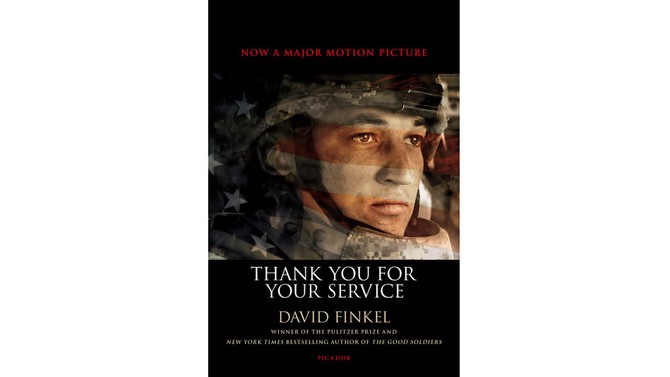
By David Finkel
272 pages; Picador
Army soldier Adam Schumann suffers from post-traumatic stress disorder after returning home from Iraq. His new reality includes sleepless nights, confusion, violence, stressed-out family members and persistent thoughts of suicide. Jason Hall's film, starring Miles Teller as Schumann, gets all that on the screen, but Finkel's 2013 book is one of the most devastating and well-reported works of journalism to come out of America's post-9/11 military conflicts. Finkel got intimate access not only to numerous families of veterans, including Schumann's, but also to Department of Defense meetings where officials struggled to understand the epidemic of veteran suicides and to provide these returning soldiers with effective care. (Film opens October 20)
272 pages; Picador
Army soldier Adam Schumann suffers from post-traumatic stress disorder after returning home from Iraq. His new reality includes sleepless nights, confusion, violence, stressed-out family members and persistent thoughts of suicide. Jason Hall's film, starring Miles Teller as Schumann, gets all that on the screen, but Finkel's 2013 book is one of the most devastating and well-reported works of journalism to come out of America's post-9/11 military conflicts. Finkel got intimate access not only to numerous families of veterans, including Schumann's, but also to Department of Defense meetings where officials struggled to understand the epidemic of veteran suicides and to provide these returning soldiers with effective care. (Film opens October 20)
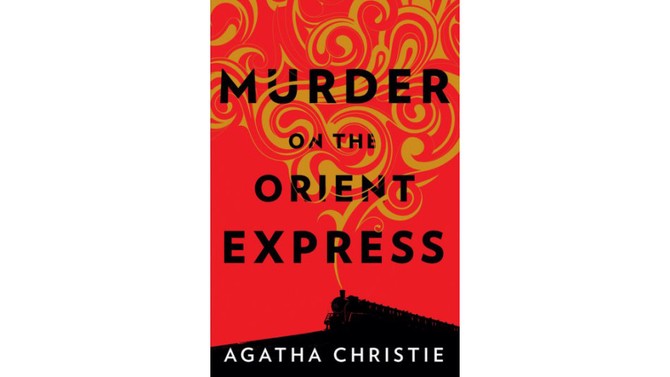
By Agatha Christie
272 pages; William Morrow
Agatha Christie's classic 1934 mystery has been adapted into a movie several times. Why? It's effectively a locked-room mystery on rails, with a cast of characters perfect for diverse ensembles. For the latest film version, Kenneth Branagh both directs and stars as Hercule Poirot, the promiscuously mustachioed Belgian detective who must solve the murder of a cantankerous wealthy man (Johnny Depp). The killer is one of his 13 fellow travelers, played by Judi Dench, Michelle Pfeiffer, Penélope Cruz and more. Few crime writers, then or now, had such silken command of a story as Christie, or her talent for creating such a range of distinct, intriguing characters. Her brushstroke descriptions of each are brilliant and, at times, withering: One passenger possesses the "expressionless, disapproving face of the well-trained servant," another an "ugliness of distinction." (Film opens November 10)
272 pages; William Morrow
Agatha Christie's classic 1934 mystery has been adapted into a movie several times. Why? It's effectively a locked-room mystery on rails, with a cast of characters perfect for diverse ensembles. For the latest film version, Kenneth Branagh both directs and stars as Hercule Poirot, the promiscuously mustachioed Belgian detective who must solve the murder of a cantankerous wealthy man (Johnny Depp). The killer is one of his 13 fellow travelers, played by Judi Dench, Michelle Pfeiffer, Penélope Cruz and more. Few crime writers, then or now, had such silken command of a story as Christie, or her talent for creating such a range of distinct, intriguing characters. Her brushstroke descriptions of each are brilliant and, at times, withering: One passenger possesses the "expressionless, disapproving face of the well-trained servant," another an "ugliness of distinction." (Film opens November 10)
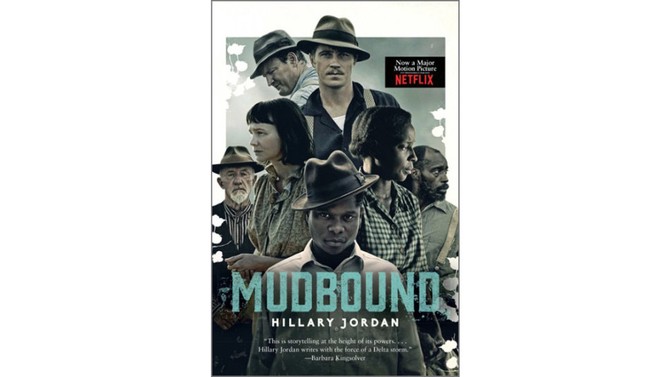
By Hillary Jordan
336 pages; Algonquin Books
Set just after World War II, Mudbound follows two intertwined families, one black and one white, in Mississippi. Ronsel (Jason Mitchell), a war hero in Europe, returns home to old-fashioned Southern racism that's crippled the future of his sharecropping family. Meanwhile, Laura (Carey Mulligan), a landowner's wife, tries to keep racial violence from exploding. What distinguishes the book is Jordan's ability to inhabit her characters, shifting perspectives to create symphonic narrative effects. Equally moving are her images of rural poverty, in which "families clad in ragged flour-sack clothes sleep ten to a room on dirt floors." (Film opens November 17)
336 pages; Algonquin Books
Set just after World War II, Mudbound follows two intertwined families, one black and one white, in Mississippi. Ronsel (Jason Mitchell), a war hero in Europe, returns home to old-fashioned Southern racism that's crippled the future of his sharecropping family. Meanwhile, Laura (Carey Mulligan), a landowner's wife, tries to keep racial violence from exploding. What distinguishes the book is Jordan's ability to inhabit her characters, shifting perspectives to create symphonic narrative effects. Equally moving are her images of rural poverty, in which "families clad in ragged flour-sack clothes sleep ten to a room on dirt floors." (Film opens November 17)
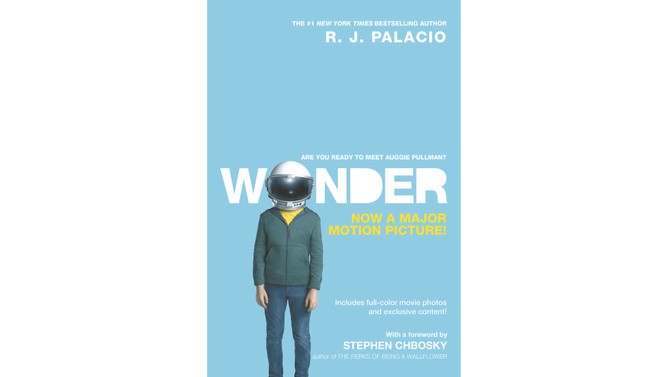
By R.J. Palacio
320 352 pages; Knopf Books for Young Readers Alfred A. Knopf
The main character of R.J. Palacio's 2012 YA best-seller, Wonder, is August, a boy born with severe facial malformations who's aching to find his place in a new school. The film adaptation, starring Owen Wilson and Julia Roberts as Auggie's parents, emphasizes the story's uplifting premise of kindness and inclusion. Palacio's novel contains the same message but also painfully captures the subtle ways bullies work their will. For example, one boy's innocent-seeming comment about a Star Wars character wrecks Auggie's entire day. By shifting narrative perspectives from Auggie to his classmates and his sister, Palacio exposes both what people see and what people miss about how this thoughtful, loving boy is treated. (Film opens November 17)
320 352 pages; Knopf Books for Young Readers Alfred A. Knopf
The main character of R.J. Palacio's 2012 YA best-seller, Wonder, is August, a boy born with severe facial malformations who's aching to find his place in a new school. The film adaptation, starring Owen Wilson and Julia Roberts as Auggie's parents, emphasizes the story's uplifting premise of kindness and inclusion. Palacio's novel contains the same message but also painfully captures the subtle ways bullies work their will. For example, one boy's innocent-seeming comment about a Star Wars character wrecks Auggie's entire day. By shifting narrative perspectives from Auggie to his classmates and his sister, Palacio exposes both what people see and what people miss about how this thoughtful, loving boy is treated. (Film opens November 17)
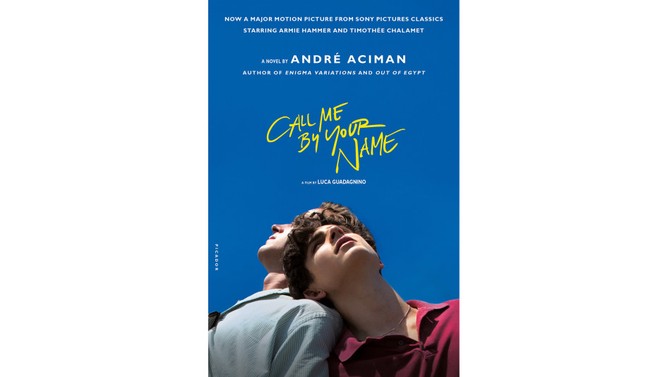
By André Aciman
256 pages; Picador
The film version of André Aciman's 2007 novel about an adolescent man's summer of discovery in an Italian seaside town is bathed in golden light and shimmering seas. The two leads, Armie Hammer and Timothée Chamalet, grow closer and closer, drawn in by lust and connection. The book, however, features Aciman's lavish prose, full of surprising, intimate images that evoke the intensity of first love: "He was my secret conduit to myself ... the steel pin that keeps a soldier's bone together, the other man's heart that makes us more us than we were before the transplant." (Film opens November 24)
256 pages; Picador
The film version of André Aciman's 2007 novel about an adolescent man's summer of discovery in an Italian seaside town is bathed in golden light and shimmering seas. The two leads, Armie Hammer and Timothée Chamalet, grow closer and closer, drawn in by lust and connection. The book, however, features Aciman's lavish prose, full of surprising, intimate images that evoke the intensity of first love: "He was my secret conduit to myself ... the steel pin that keeps a soldier's bone together, the other man's heart that makes us more us than we were before the transplant." (Film opens November 24)
Published 10/11/2017

